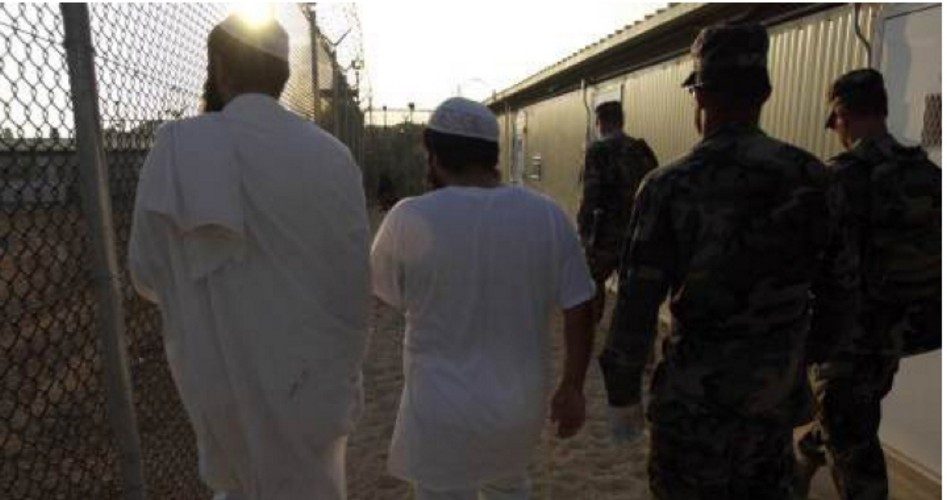
The U.S. Court of Appeals for the Second District struck down an injunction against indefinite detention of U.S. citizens by the president under the National Defense Authorization Act of 2012 in a July 17 ruling that is a blow to civil liberties protected by the U.S. Constitution. The appellate court ruled:
Plaintiffs lack standing to seek preenforcement review of Section 1021 and vacate the permanent injunction. The American citizen plaintiffs lack standing because Section 1021 says nothing at all about the President’s authority to detain American citizens.
The Section 1021 of the NDAA allows “detention under the law of war without trial until the end of the hostilities” for “a person who was a part of or substantially supported al-Qaeda, the Taliban, or associated forces that are engaged in hostilities against the United States or its coalition partners, including any person who has committed a belligerent act or has directly supported such hostilities in aid of such enemy forces.” The court is technically correct in stating that the law does not specifically mention U.S. citizens when it uses the term “person,” but like the vaguely worded “supported such hostilities in aid of such enemy forces,” it appears to be all-encompassing and subject solely to the president’s discretionary whims.
The threat that the U.S. government would detain indefinitely — or even kill — an American citizen without formal charges or judicial proceeding is hardly theoretical. The appellate court that struck down the injunction acknowledged that fact:
Presidents Bush and Obama have asserted the right to place certain individuals in military detention, without trial, in furtherance of their authorized use of force. That is, whom did Congress authorize the President to detain when it passed the AUMF [Authorization for the Use of Military Force]? On December 31, 2011, President Obama signed into law the National Defense Authorization Act for Fiscal Year 2012. Section 1021 of that statute, which fits on a single page, is Congress’ first — and, to date, only — foray into providing further clarity on that question. Of particular importance for our purposes, Section 1021(b)(2) appears to permit the President to detain anyone who was part of, or has substantially supported, al-Qaeda, the Taliban, or associated forces.
Both President Obama and George W. Bush have authorized the detention or killing of American citizens without any due process.
U.S. citizen Anwar al-Awlaki had been deemed a terrorist by the Obama administration for essentially maintaining a YouTube site that called for attacks against Americans from Awlaki’s Yemeni home. Awlaki — an American citizen — was later killed in a September 30, 2011 drone strike authorized by President Obama but without any judicial proceeding. No evidence of his actual involvement in any terrorist incident was ever made public, and no charges were ever brought in any court against Awlaki. Two weeks later Awlaki’s Colorado-born 16-year-old son, Abdulrahman, was killed in a separate drone strike authorized by the president. And President Obama is widely known to have a “kill list” that includes American citizens.
President Bush detained at least four American citizens without trial: U.S. Navy Veteran Donald Vance, Nathan Ertel, Yaser Hamdi, and Jose Padilla. Although Vance and Ertel were released after a few months of torture (they were innocent), the Bush administration fought giving Hamdi and Padilla a trial — and even a habeas corpus hearing — all the way to the U.S. Supreme Court.
The suit against the NDAA was brought largely by plaintiffs who are journalists and political activists, each claiming that their First Amendment-protected rights to freedom of speech, press, and assembly had been “chilled” because of the threat of indefinite detention. One of the journalists, Nobel Prize-winner Christopher Hedges, had interviewed al-Qaeda members as part of a story on the terrorist organization, and sought an injunction against his detention for what a president could claim was “aid” of enemy forces under the NDAA. Hedges’ fear is not unfounded; three former Guantanamo detainees (the British citizens released because they were innocent) were deemed by the U.S. government in 2007 as having “returned to the battlefield” for the crime of granting an interview for the documentary film The Road to Guantanamo.
The injunction against the NDAA that was overridden, issued by Judge Katherine B. Forrest last year, against detentions without the ordinary court process said: “The Government did not — and does not — generally agree or anywhere argue that activities protected by the First Amendment could not subject an individual to indefinite military detention under § 1021(b)(2). The First Amendment of the U.S. Constitution provides for greater protection: It prohibits Congress from passing any law abridging speech and associational rights…. First Amendment rights are guaranteed by the Constitution and cannot be legislated away.”
Though the injunction against indefinite detention was struck down largely on jurisdictional grounds, the appellate court essentially dismissed the district court ruling that “plaintiffs did present evidence that First Amendment rights have already been harmed and will be harmed by the prospect of § 1021(b)(2) being enforced. The public has a strong and undoubted interest in the clear preservation of First and Fifth Amendment rights.”
Shown is the Guantanamo Bay detention center



